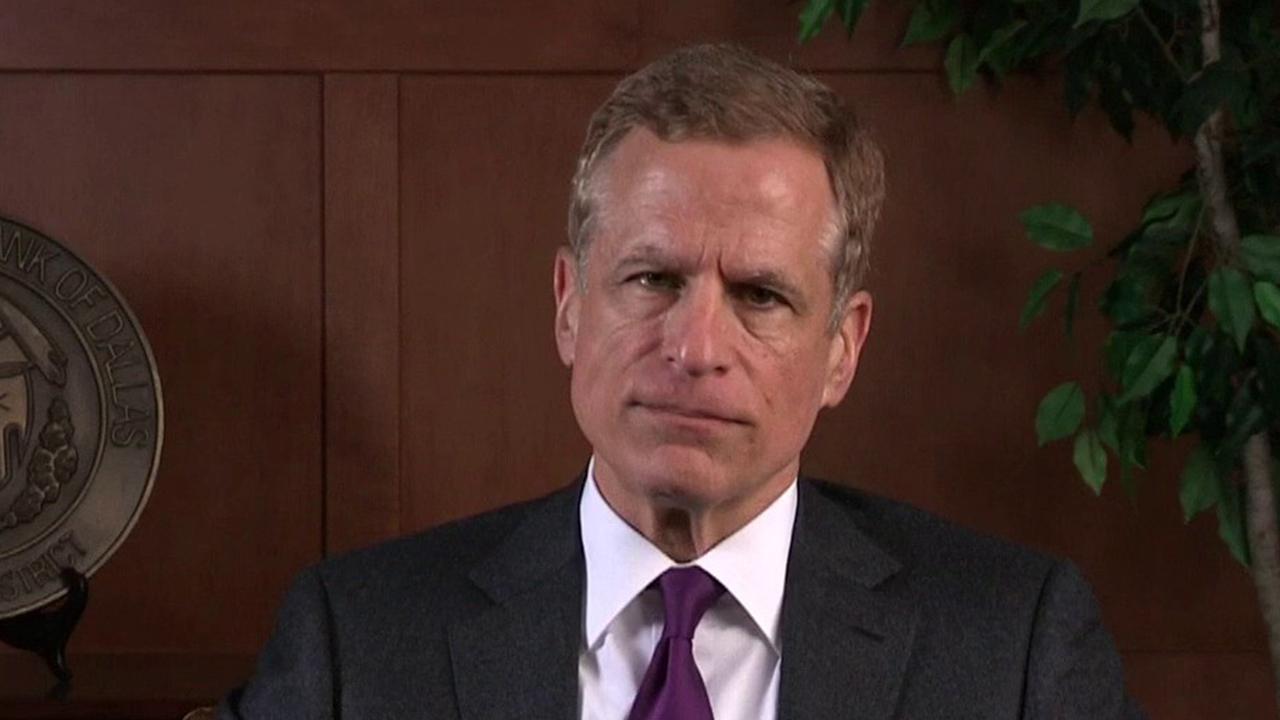Fed’s Kaplan warns of ‘historic’ economic contraction, sees need for more stimulus
Kaplan said the coronavirus could cause unemployment to rise as high as 20%
Get all the latest news on coronavirus and more delivered daily to your inbox. Sign up here.
The U.S. economy will likely need additional stimulus this year as the coronavirus-induced lockdowns trigger a “historic” contraction in the second quarter of this year, according to Dallas Federal Reserve Bank President Robert Kaplan.
“This is a historic contraction, very severe,” Kaplan told FOX Business’ Maria Bartiromo on Friday. “We’re going to need stimulus going into the rest of the year and into next year so we can grow faster, so we can work down this unemployment rate. That’s not so much the Fed’s role.”
FED PLEDGES AGGRESSIVE ACTION TO SUPPORT US ECONOMY
Kaplan’s comments come amid a grim backdrop: The Labor Department said Thursday that more than 3.8 million Americans filed for unemployment benefits last week, pushing the six-week total of job losses since states adopted strict stay-at-home measures to 30.2 million. Unemployment at this scale hasn’t been recorded since the Great Depression, when the jobless rate peaked at 25 percent.
Unemployment could soar as high as 20 percent and end the year as high as 8 percent to 10 percent, Kaplan said. Just a few months ago, the jobless rate sat at 3.5 percent, a half-century low.
Gross domestic product, the broadest measure of goods and services produced across the economy, could shrink as much as 30 percent on an annualized basis this quarter, he said. Although Kaplan said he anticipates growth in the third and fourth quarters of the year, he expects the economy will still shrink by about 4.5 percent to 5 percent for the year overall.
US ECONOMY SHRANK BY 4.8 PERCENT IN FIRST QUARTER
To blunt the economic pain, the U.S. central bank has taken a range of extraordinary actions, including slashing interest rates to near-zero, purchasing an unlimited amount of Treasurys (a practice known as quantitative easing) and launching crisis-era lending facilities to ensure that credit flows to households and businesses. It has also said it will buy corporate bonds and lend to states and cities.
During their two-day meeting this week, Fed policymakers vowed to continue taking aggressive action to support the economy, including holding interest rates near zero until the U.S. has weathered the crisis -- a sentiment that Kaplan echoed.
"Rates are going to stay lower for longer and the Fed is going to need to do more in terms of other actions to bridge this period," he said.
But like Fed Chairman Jerome Powell, Kaplan suggested the federal government may need to undertake additional stimulus measures to boost the economy.
FED'S POWELL SAYS US ECONOMY 'MAY NEED MORE SUPPORT' FOR RECOVERY TO BE ROBUST
Congress has already passed four massive stimulus packages to address the economic fallout from the virus outbreak, including the $2.2 trillion CARES Act signed into law at the end of March, which established the Paycheck Protection Program, expanded unemployment benefits by $600 per week and sent one-time payments of up to $1,200 to Americans who earn less than $99,000.
The central bank chief declined to provide specific policy measures that Congress should consider, but did say policies that protect workers, businesses and households from avoidable insolvency will be "key."
"It'll come with a hefty price tag," Powell said during a press conference this week. "But we would come out of this with less long-run damage to the economy."




















